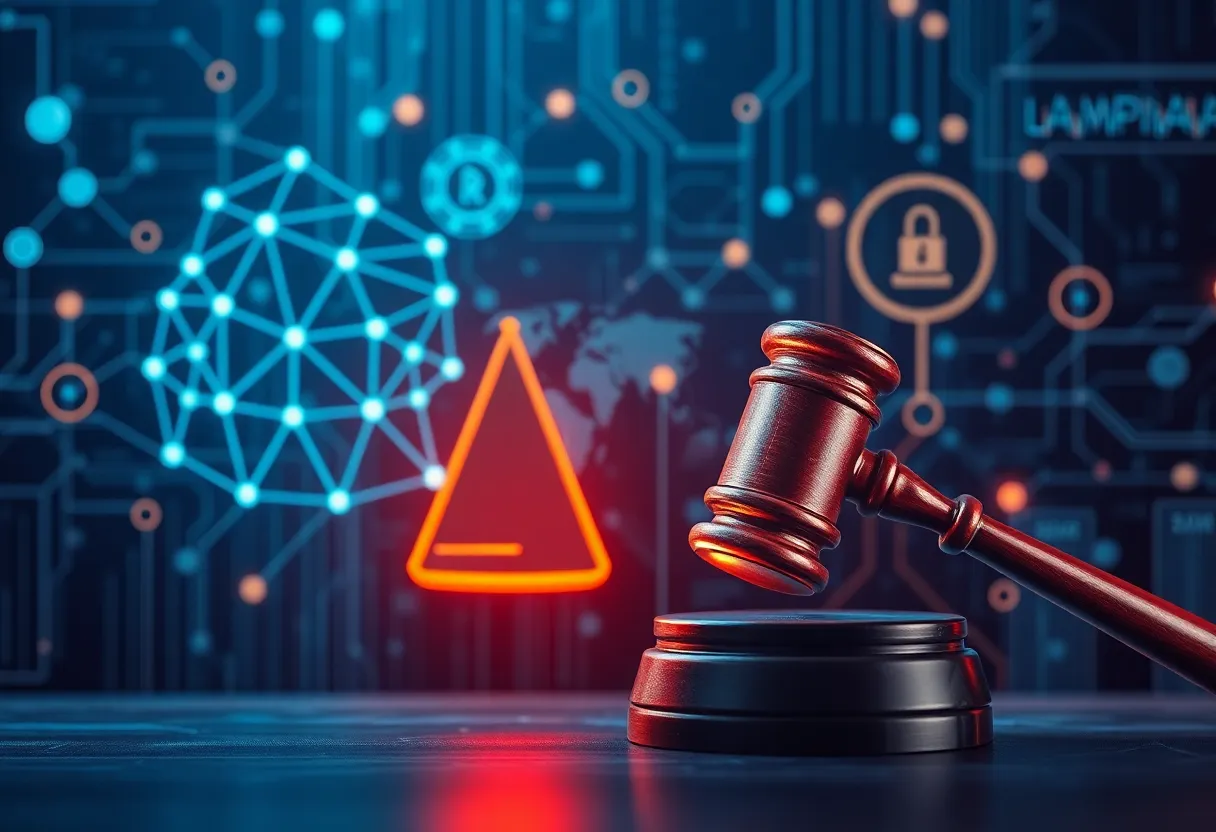

The balance between innovation and regulation in the tech industry.
Want to target the right audience? Sponsor our site and choose your specific industry to connect with a relevant audience.
Prominent brand mentions across targeted, industry-focused articles
High-visibility placements that speak directly to an engaged local audience
Guaranteed coverage that maximizes exposure and reinforces your brand presence
Interested in seeing what sponsored content looks like on our platform?
May’s Roofing & Contracting
Forwal Construction
NSC Clips
Real Internet Sales
Suited
Florida4Golf
Click the button below to sponsor our articles:
Sponsor Our ArticlesThe DOJ’s lawsuit against RealPage raises significant concerns about the implications of antitrust laws on AI development. The case centers on accusations of unlawful collusion among landlords using YieldStar pricing software, potentially stifling innovation in various industries reliant on algorithmic strategies. This case may redefine antitrust interpretation and impact how businesses utilize AI tools, creating uncertainty for future advancements.
The U.S. Department of Justice (DOJ) is currently stirring up quite a bit of dialogue with its lawsuit against RealPage, a company known for its innovative YieldStar pricing software. This software allows landlords to determine rental prices in real-time by analyzing market data. But here’s the twist: the DOJ has raised alarms that by using the same pricing tool, competing landlords might be engaging in what they call *”tacit collusion.”*
The heart of the DOJ’s complaint is that landlords utilizing YieldStar are participating in unlawful collusion, which violates Section 1 of the Sherman Act. Essentially, the DOJ believes that even without direct communication, sharing similar strategies through algorithm-driven pricing can lead to anti-competitive behaviors that hurt renters. This is raising eyebrows across the board, particularly as AI technology continues to innovate and evolve.
Former attorney John Reeves has weighed in, calling this lawsuit a serious threat to the future of artificial intelligence. If algorithmic pricing can be seen as collusion, it opens a floodgate of concerns about the future of AI across numerous sectors. What does this mean for small businesses looking to harness AI-driven technology? Critics are concerned it may infringe upon their ability to innovate and use tools that could otherwise be beneficial.
Legal experts emphasize that traditional interpretations of antitrust law require a clear “agreement” for collusion to be established. For instance, a historic Supreme Court case detailed that simply exchanging information isn’t enough to prove collusion. Furthermore, recent Seventh Circuit Court interpretations have ruled that just acting similarly doesn’t amount to illegal price-fixing. If the DOJ’s argument holds, this might change the landscape of antitrust interpretation for years to come.
The situation is further complicated by rising scrutiny surrounding algorithmic pricing tools. Some areas have even enacted local laws to curb the use of rental revenue management software that processes confidential information. There’s also been a push for legislation—like the Preventing Algorithmic Collusion Act—though it hasn’t gained traction thus far. The tension is palpable as federal antitrust enforcers and state attorneys general seem to be increasingly focused on potential price manipulation through common algorithms.
This case isn’t just a real estate issue; it casts a wide net across industries including healthcare, airlines, hotels, and ride-sharing services, all of which employ algorithmic pricing strategies. If the DOJ’s concepts are upheld, many businesses might reconsider their use of AI technology, which could lead to a chilling effect on innovation.
The *RealPage Inc. case* is still pending, with motions to dismiss having been filed, but the conversations sparked by it could have long-standing impacts. Experts warn that if the DOJ’s interpretations of antitrust law go unchallenged, smaller firms might shy away from adopting these beneficial technologies due to the fear of legal repercussions.
The unfolding drama surrounding the RealPage case highlights the fragile balance between regulation and innovation. As the legal community watches closely, the risk of discouraging AI development is more than a niche concern—it’s an issue impacting the future of how industries operate. The implications stretch far beyond the courtroom, coloring the future landscape of technology and business practices all over the country.
News Summary The University of Michigan has ended its contracts with private security firms after…
News Summary Meijer has issued a recall for specific packages of Frederik's Dark Chocolate Almonds…
News Summary The Michigan Attorney General's Office executed search warrants at the MEDC headquarters amid…
News Summary A jury has awarded over $75 million to Brian Mierendorf, a 37-year-old HVAC…
Cheers to Style: Trendy and Functional Basement Wet Bar Ideas Creating a basement wet bar…
News Summary Busch's Fresh Food Market has unveiled a new hyperlocal produce program to celebrate…